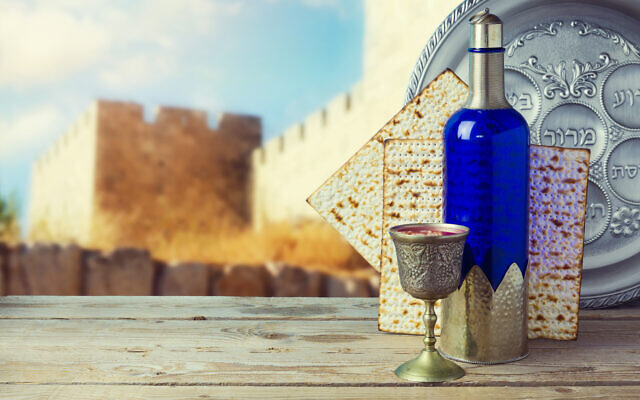What is the true meaning of freedom?
"The Exodus it would seem was not the open field of freedom but the corridor from one form of slavery to another."
ASK anyone what the theme of Pesach is and they’ll tell you it’s freedom – “Zman Cheruteinu”. But what is freedom? Does freedom allow for discipline or is freedom the ability to do as one pleases without let or hindrance? Simply put, can one be free if they are governed by rules they don’t wish to follow?
As simplistic as this question seems it goes straight to the essence of Pesach. On Pesach we were emancipated from slavery and born as a people. Previously held under Egyptian rule against our will, we were now free to leave behind the chains of slavery. This should have ushered in an era of national enfranchisement; a time to explore the world as our oyster and choose a path to our own happiness. Pesach should have ended the servitude and heralded an epoch of new found liberties and self-determination; a time to escape the shackles of imposed dictates and become masters of our own destinies.
But it didn’t. The authoritative rulership didn’t end. New rules were imposed. New dictates were enacted. We became restricted in ways we could never have imagined. Laws restricting who we can marry, what we can eat, what we can say and what we can think. Laws regulating when we can work and when we must rest, when we must fast and when we must pray, how we must educate our children, how much we must give to the poor, how we must treat the living and how we must bury the dead. Pesach was the precipitator of our disciplined allegiance to God and our unconditional acceptance of His commandments – all 613 of them.
The Exodus it would seem was not the open field of freedom but the corridor from one form of slavery to another.
Indeed our Sages ponder this very question. “You shall take the people out of Egypt in order to serve God on this mountain (Sinai)” were God’s famous words to Moses (Shemot 3:12) when appointing him as redeemer of the Jewish people. Does one not see the irony in that statement? The Jews weren’t freed. They just traded one ruler for another. God, it would appear, saw graduating from Egyptian emancipation to Sinaic servitude as a logical and seamless transition.
But of course the same Sages who asked the question provided us with the answer – two of them in fact.
On the basic level, the laws of Judaism were given so we’d be identifiable as Jews. This would be no different to civil law which is needed to identify us as civil human beings. Embedded in the constitution of any democratic country is the right of freedom and liberty. But equally as central to that constitution is the need for justice and rule of law. Freedom cannot be defined as complete autonomy without limit as this would ultimately lead to the moral decay of society and an erosion of the very fabric of civilisation. Without civil laws we would cease to be civil. In the same respect, without religious laws we would cease to be a religion. Jewish law makes us different from other people. It provides a sense of identity which sets us apart from other nations of the world. Some Jews observe more Jewish laws and others less, but what has bound us together throughout 2000 years of exile in countries all over the world is a common heritage and tradition, manifest in the laws of our Torah.
But there is a deeper element – one which talks not to our nationhood but to our collective soul. The Kabbalists teach us that not all souls are alike. Jewish souls and those of other nations contain different spiritual DNA. Jewish souls, the Kabbalists explain, are comprised of 613 components. Each corresponds to one of the 613 mitzvot of the Torah and through their fulfilment one connects to G-d (the Hebrew word “mitzvah” connoting “connection”). According to the Kabbalah, as Jews we are in fact hard wired from birth to follow a spiritual path expressed through observance of the Torah.
While there is much diversity within the framework of Jewish observance in terms of the varying customs different communities have adopted throughout the ages, the core mitzvot remain integral to our spiritual expression. The Kabbalah rejects the notion that we can be “spiritual” without Torah. Torah is what defines our spirituality, and its observance, they explain, is the true expression of Jewish freedom.
But of course this doesn’t come easy. Observance of the Sinaic laws is difficult at the best of times and no more evident is this than on Pesach with all the arduous labour it entails (not to mention the toll it takes on our digestive systems). Indeed, God did free us from one form of servitude and subjugate us to another. But the difference is clear. The former servitude was to a foreign power which was destructive to our spiritual self. It was the epitome of slavery. The latter, servitude to God through His holy Torah, is physically restrictive yet spiritually expressive and liberating. It represents freedom in its true context – the ability to express oneself for who one truly is.
Yaakov Glasman is Senior Rabbi of St Kilda Hebrew Congregation and president of the Rabbinical Association of Australasia.


comments